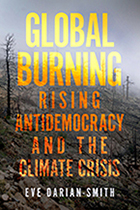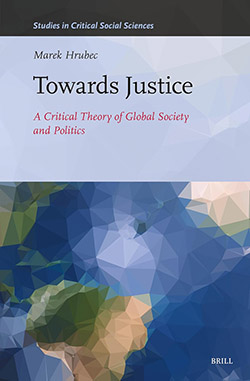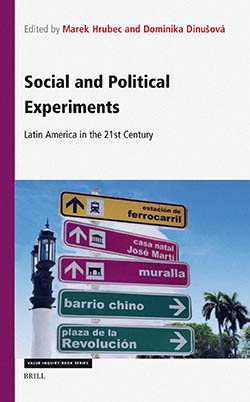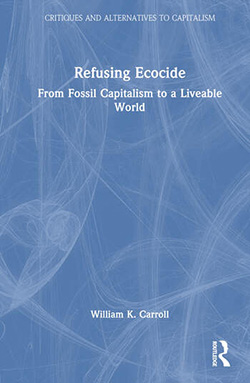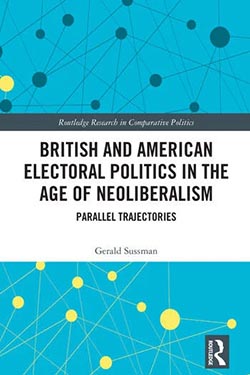
October 28, 2025
Visit our sister
GSA/UK organization:
Designed by V.M.S.
© 2004-2025
All Rights Reserved
NEW BOOKS:
Towards a New Research Era: A Global Comparison of Research Distortions
Edited By Marek Hrubec and Emil Visnovsky
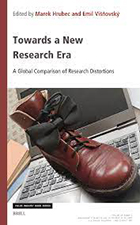
Peace Advocacy in the Shadow of War
By Francis Shor
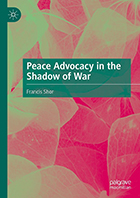
ONLINE CONFERENCE:
The Research Centre of International Politics (CIPI), Global Studies Association of North America (GSA), and Institute of the Czech Left (ICL) invite you to attend an online conference focused on the 'Geostrategic Projections of the EU and the US Toward Latin America and Cuba.'
DATE: Wednesday, November 5, 2025
For more information, contact Jerry Harris, gharris234@comcast.net or Marek Hrubec, marek.hrubec@gmail.com
SCHEDULE
12:15 PM Havana | 11:15 AM Chicago | 18:15 Madrid/Prague
Opening the online connection
12:30 PM Havana | 11:30 AM Chicago | 18:30 Madrid/Prague
Introduction to the Conference
Raynier Pellon Zopardo (CIPI), Marek Hrubec (ICL), Jerry Harris (GSA)
12:45 PM - 2:15 PM Havana | 11:45 AM - 1:15 PM Chicago | 18:45 - 20:15 Madrid/Prague
Session 1: The EU and Latin America in Global Interactions
Chair: Jerry Harris (GSA)
* Marga Ferre (transform! europe), Dogmas and fractures: a dual analysis of changes in policies and perceptions of the relationship between Europe and Latin America and Cuba
* Lourdes Regueiro Bello (CIPI), Latin America and the Caribbean: Between declining empires and rising powers
* Marek Hrubec (ICL), The Global Gateway. EU's Implementation in Latin America and the Caribbean
* Ivet Lopez Rodríguez (CIPI), Germany in Latin America and the Caribbean
* Raynier Pellon Azopardo (CIPI), Asymmetric Interdependence between the US and the EU: Impacts on Their Differentiated Policies toward Cuba
* Georgina Nemeth Lesznova (CIPI), Strategic Relations between the EU and LAC: A Necessity in the Face of the 21st Century Crisis
2:15 - 2:30 PM Havana | 1:15 - 1:30 PM Chicago | 20:15 - 20:30 Madrid/Prague
Break
2:30 - 4:00 PM Havana | 1:30 - 3:00 PM Chicago | 20:30 - 22:00 Madrid/Prague
Session 2: The US, the EU, and Latin America in Global Interactions
Chair: Marek Hrubec (ICL) and Raynier Pellon Azopardo (CIPI)
* William Robinson (University of California), Trump, Capitalist Crisis, and Latin America
* Jerry Harris (GSA), US/China Competition in a Multi-Polar Latin America
* Ernesto Dominguez Lopez (CEHSEU), United States and Latin America in the shifting geopolitics of the contemporary capitalist world-system
* Sergio de Jesus Jorge Pastrana & Jose Ramon Cabanas (CIPI), Science, Diplomacy and Sustainability in Bilateral Relations Between Cuba and the United States
* Javier Moreno (Universidad de Sevilla y FIM), Progressive governments in Latin America and current debates on communication regulation in relation to the EU
* Martin Profan (ICL), Preconditions for Influence of German-speaking Countries in Latin America
4:00 - 5:00 PM Havana | 3:00 - 4:00 PM Chicago | 22:00 - 23:00 Madrid/Prague
Discussion
For more information, contact Jerry Harris, gharris234@comcast.net or Marek Hrubec, marek.hrubec@gmail.com
See last year's conference program >>
CALL for CHAPTERS:
The Handbook of Ecocultural Methodology and Transformation
Recent major global environmental reports emphasise that humanity's dominant anthropocentric ways of orienting to the Earth have brought us to today's global environmental, extinction, and climatic crises (see, e.g. UNEP, 2021). As the species responsible, we must develop the insight and tools to change the life-extinguishing paradigms driving these crises. Systems change theorists (e.g., Meadows, 2015) argue the most powerful leverage point for bringing about massive transformation is in making visible, deconstructing, and reworking these dominant orienting paradigms through which we encounter and shape the world. This book aims to build shared methodological foundations to buoy research across disciplines that challenges dominant anthropocentric paradigms and amplifies enduring and rising paradigms to undergird pluriversal futures (Escobar, 2020) defined by mutual survival and flourishing.
Editors: Tema Milstein, University of New South Wales; Jose Castro-Sotomayor, California State University Channel Islands; Mariko Thomas, Skagit Valley College; Lyb Maree, University of New South Wales
Deadline for submissions: December 1, 2025
Read more and submit >> Handbook of Ecocultural Methodology and Transformation_Call for Chapters FINAL
NEW from BRILL:
Towards Justice: A Critical Theory of Global Society and Politics
By Marek Hrubec
Based on a critique of liberal and libertarian contradictions with their conflictual consequences and on analyses of critical social theories and perspectives from the Global South (Latin America, Africa, and Asia), as well as the Global North, this book seeks to address tensions of global social misrecognition and injustice. It deals with the dispute over particular and universal norms on local, regional, and global levels, extra-territorial social recognition of the global poor, strategic socialism, threats of global hegemony, authoritarianism, and war in light of various conflicts.
Social and Political Experiments: Latin America in the 21st Century
Edited by Marek Hrubec and Dominika Dinusova
This book focuses on innovative transformations and demands for social and political justice in 21st-century Latin America. The volume surveys how these ongoing shifts have motivated two recent emancipatory tides in several Latin American countries, further developing and giving new momentum to social changes previously set in motion.
CALL for PAPERS:
Disaster socialism?
Global society is mired in a civilizational crisis that is both geopolitical-economic and ecological. As the structures of neoliberal globalization collapse while other alignments emerge, as the conditions for extractive accumulation on the treadmill of production are eroded, as climate crisis wreaks havoc on living systems that form the bases for human existence, great dangers present themselves, along with unprecedented openings. In a deep, organic crisis of this sort, as Gramsci noted, 'the old is dying and the new cannot be born; in this interregnum a great variety of morbid symptoms appear.' Among the symptoms is what Naomi Klein termed 'disaster capitalism': the enabling of accumulation by dispossession as a response to disasters caused by climate breakdown. For this Socialist Studies Special Issue, papers will explore the prospects for 'disaster socialism', which, if it is to emerge, will do so not on the basis of abundance but within a situation of ecological overshoot, requiring massive ecological restoration. Themes to be explored include: the social forces, political projects and organization forms through which post-capitalist, ecologically sustainable economic democracy could develop/is developing, the political-economic and cultural-ideological forces arrayed against such initiatives and the socio-political forms within which initiatives to heal earth and humanity can take root.
Special Issue Editor: Bill Carroll, Sociology, University of Victoria, wcarroll@uvic.ca
Deadline for submissions: October 31, 2025
Please submit manuscripts to: https://socialiststudies.com
NEW from BRILL:
Towards Justice: A Critical Theory of Global Society and Politics
By Marek Hrubec
Based on a critique of liberal and libertarian contradictions with their conflictual consequences and on analyses of critical social theories and perspectives from the Global South (Latin America, Africa, and Asia), as well as the Global North, this book seeks to address tensions of global social misrecognition and injustice. It deals with the dispute over particular and universal norms on local, regional, and global levels, extra-territorial social recognition of the global poor, strategic socialism, threats of global hegemony, authoritarianism, and war in light of various conflicts.
New from Routledge, Refusing Ecocide: From Fossil Capitalism to a Liveable World provides a critical analysis of the central role of fossil capitalism in causing climate change and argues that only alternatives based upon democratic eco-socialism can prevent the deepening of the climate crisis.
Employing three core concepts within historical materialism, capitalist accumulation, imperialism and hegemony, it locates the existential threat of our changing climate in the drive for increasing profit and growth, the domination of advanced capitalist states that strip resources and exploit cheap labour, and the consent to the capitalist way of life in the global North. With attention to the ways in which, powered by fossil fuels, capital has subjected the world to its predatory logic, this book charts this history and surveys the damage from the Industrial Revolution to today's deep civilizational crisis, arguing that the market-based and purely technological solutions of 'climate capitalism' are too little, too late.
A call for a multifaceted and multi-scalar shift away from capitalist accumulation, imperialism and class hegemony and instead towards democratic eco-socialism, it will appeal to scholars across the social sciences with interests in political and social theory, the environment and sustainability.
New from Routledge, British and American Electoral Politics in the Age of Neoliberalism: Parallel Trajectories employs a political economic approach in exploring the underlying neoliberal foundations of politics and electioneering in both the United States and the United Kingdom that have widened the divide among voters and, over time, led to a deep distrust of state institutions, including electoral politics and system of political representation.
Covering the period of 1980 to the present, the book provides analysis of how neoliberalism applies to the electoral sphere and the growing use of advanced communication technology and draws the connections between the larger forces behind the globalising political economy and the trajectory of the corporate state and the many intersections of US and UK electoral politics, with lessons for other wealthy states that follow in similar pathways. As such, it helps explain a phenomenal parallel pattern of major political upheavals and social dislocations within these two countries. Finally, it reveals through numerous social indicators that the two leading neoliberal political economic systems are producing depressing results for large sections of their citizenry and a threat to social democracy, as the concentration of wealth and well-being is largely captured by a minority class of empowered individuals.
NEW BOOKS:

|
Weaponized Whiteness: The Constructions and Deconstructions of White Identity Politics By Fran Shor |
Globalization Matters: Engaging the Global in Unsettled Times By Manfred B. Steger and Paul James |
Globalizing the Caribbean: Political Economy, Social Change, and the Transnational Capitalist Class By Jeb Sprague |
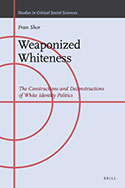
|
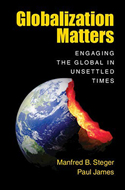
|
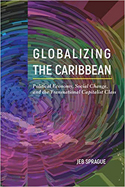
|
NEW BOOKS:
Paramilitary Groups and the State under Globalization
Edited By Jasmin Hristov, Jeb Sprague, Aaron Tauss
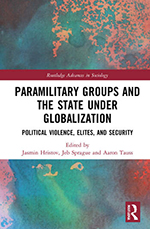
Global Civil War: Capitalism Post-Pandemic
By William I. Robinson
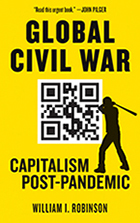
Second Thoughts on Capitalism and the State
By Leslie Sklair
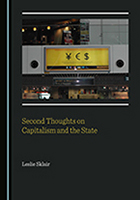
Global Burning: Rising Antidemocracy and the Climate Crisis
By Eve Darian-Smith
